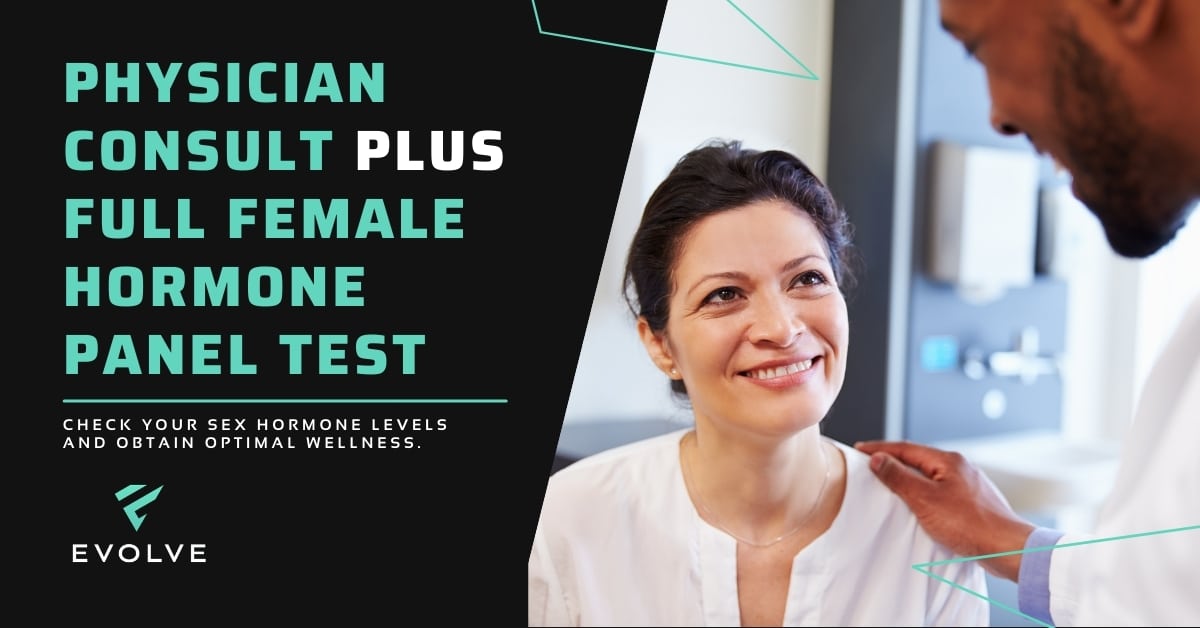Many women dread menopause and see it as a sign of growing old. This is a shame because the postmenopausal period should be the least stressful time of a woman’s life. While some of the symptoms of menopause can last well into the postmenopausal period, it is entirely possible to reduce your discomfort through medication and lifestyle changes.
Overview
“Postmenopause” is the name given to the period of a woman’s life after she has gone through menopause (diagnosed when she has not had a menstrual period for twelve months).
Once a woman is postmenopausal, she no longer ovulates and therefore cannot get pregnant. The production of the estrogen hormone also drops significantly after menopause.
Menopause occurs naturally at some point during a woman’s forties or fifties. However, some women will go through what is known as premature menopause. This may be due to genetics, having a hysterectomy, or undergoing chemotherapy.
In the postmenopausal period, the textbook symptoms of menopause should become less noticeable in daily life; however, this is not a guarantee, and many postmenopausal women will continue to experience unpleasant symptoms. Additionally, lower estrogen levels put postmenopausal women at greater risk of certain health conditions.
Symptoms
Many of the symptoms reported by postmenopausal women are identical to those experienced during menopause. The onset of symptoms is usually gradual, but it may be more sudden for those going through premature menopause. They include:
- Reduced libido
- Discomfort/pain during sex
- Hot flushes and night sweats
- Less frequent urination, leading to recurrent urinary tract infections
- Difficulty sleeping/insomnia
- Headaches
- Difficulty concentrating
- Heart palpitations
- Mood swings, depression
- Decreased bone and muscle mass
Thankfully, most women will stop experiencing the symptoms of menopause around four years into the postmenopausal period. However, this is not always the case. The NHS website reports that one in ten women will continue to experience unpleasant symptoms for as long as twelve years into postmenopause.
What Complications Do Postmenopausal Women Face?
The effects of menopause lead to more significant health risks for postmenopausal women. All women must be aware of these complications and how they can progress into further health problems.
Heart Disease
Heart disease is a significant concern among postmenopausal women. It is thought that estrogen aids blood flow through the heart and controls our cholesterol levels. After menopause, when the body stops producing as much estrogen, the blood vessels stiffen and narrow, restricting the blood flow. This will increase the risk of developing coronary heart disease and having a heart attack or stroke. This risk is even greater for women who go through premature menopause.
Osteoporosis
Another health risk is osteoporosis, a disease that causes bones to weaken and break easily. Loss of bone mass is a natural part of menopause, but it puts women at a far higher risk of osteoporosis than men. Unfortunately, it is often a “silent disease,” meaning it isn’t detected until a postmenopausal woman suffers a fracture. Additionally, once one fracture happens, the bones are more susceptible to further breaks.
Urinary Incontinence
Many postmenopausal women suffer from urinary incontinence in some form, ranging from minor leakage when coughing, sneezing, etc., to not making it to the toilet on time during the night. Sometimes this is caused by a urinary tract infection and is only temporary, but it is often long-term and embarrassing for the sufferer. It can lead to mental health issues and fear of leaving the house if they have an accident.
Weight Gain
A characteristic complication in postmenopausal women is weight gain around the middle (abdomen and hips). As a woman loses bone and muscle mass, fat will generally increase. The middle of the body is the most dangerous area to gain weight concerning health risks, and it can often lead to further complications.
Thankfully, there are ways to treat these postmenopausal complications and general ways to lead a healthy lifestyle after menopause.
Available Treatments
After menopause, women need to take care of both their mental and physical health.
Hormone Replacement Therapy
Your doctor may offer hormone replacement therapy (HRT) as part of your treatment plan. This will either be estrogen-only (estradiol) or combined with progesterone.
Increasing estrogen levels in the body will help relieve symptoms such as hot flushes, night sweats, and vaginal dryness, and the therapy will be offered in different forms such as creams or tablets. However, HRT carries an increased risk of blood clots and endometrial cancer, so be sure to discuss all of your options with your doctor first.
Cognitive Behavioural Therapy
The postmenopausal period will often lead to depression among other mental health issues. It’s important to know that you’re not alone, and there are options available to help you feel better.
Otherwise known as CBT, cognitive behavioral therapy will help you restructure your mindset to practice more positive and productive thinking. Your therapist will work with you on an individual basis to help you target your psychological issues. There is also some evidence that CBT can help with hot flushes.
How to Stay Healthy in the Postmenopausal Period
Postmenopausal women must take some precautions to lead a healthy lifestyle and avoid further health complications.
Stop Smoking
By now, the health risks of smoking are well-known. It will increase your risk of a heart attack or stroke, and the carbon monoxide in cigarettes cuts off oxygen flow to the bloodstream. As a postmenopausal woman, it is vital to avoid this serious risk to cardiovascular health.
Smoking is an addiction, and it can be difficult to quit. Speak with your doctor about the options available and what is best suited to you.
Monitor Your BMI and Blood Pressure
Early detection is key to preventing severe health problems. Postmenopausal women should have their blood pressure checked regularly and measure their BMI (body mass index, based on height and weight).
If there are any significant changes, these should be brought to the attention of your doctor.
Exercise Regularly
Exercising for 30 minutes at least three times per week will help with weight loss and maintain bone density (therefore reducing the risk of osteoporosis). It does not have to be difficult exercise; many postmenopausal women enjoy brisk walking and swimming as regular exercise.
Follow a Nutritious Diet
Postmenopausal women need more calcium and Vitamin D than most people to slow the loss of bone density. Try to avoid too much sugar and processed carbohydrates, and choose foods with healthy fats and fiber.
Improve Your Pelvic Muscles
There are a few simple ways to reduce the risk of urinary incontinence. Practice kegel exercises a few times per day, and avoid holding urine for long periods.

Conclusion & Getting Started with HRT
The postmenopausal period does not have to be stressful; in fact, it can be the best time of your life. With a few lifestyle changes and good habits, it is entirely possible to pass through this period with minimal problems so that you can concentrate on relaxing and enjoying life.
When searching for HRT, it’s essential to find hormone experts who can help you feel the best through menopause and after. Female health and hormones should be taken seriously and handled with the best care. Patient care at EVOLVE consists of qualified telemedicine experts who can provide that care through every step of your hormone treatment plan. We suggest a physician consultation plus a full female hormone panel test to check your levels of:
- Testosterone
- Estradiol
- Sex Hormone-Binding Globulin (SHBG)
- Prolactin
- Progesterone
- Follicle-stimulating hormone (FSH)
- Luteinizing hormone (LH)
- TSH, Free T4, Free T3
- And more.
Once your blood test results are analyzed by your EVOLVE physician, a one-on-one consultation will be scheduled. Following your consultation, you will receive your physician-prescribed hormone treatment plan continued with patient check-ups. If you have any concerns about your hormone levels or have questions about postmenopausal treatment, contact Patient care @EVOLVE today!






